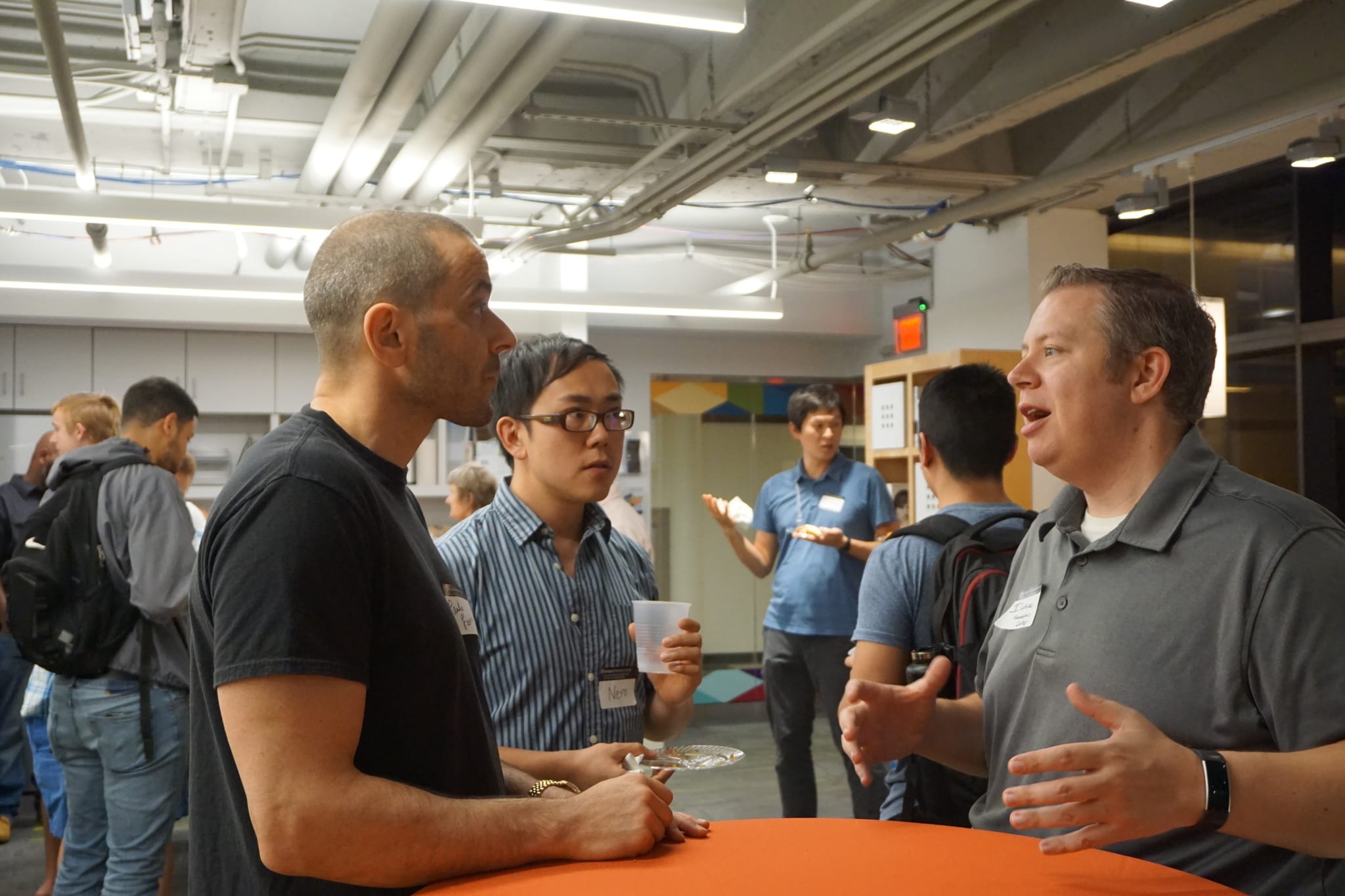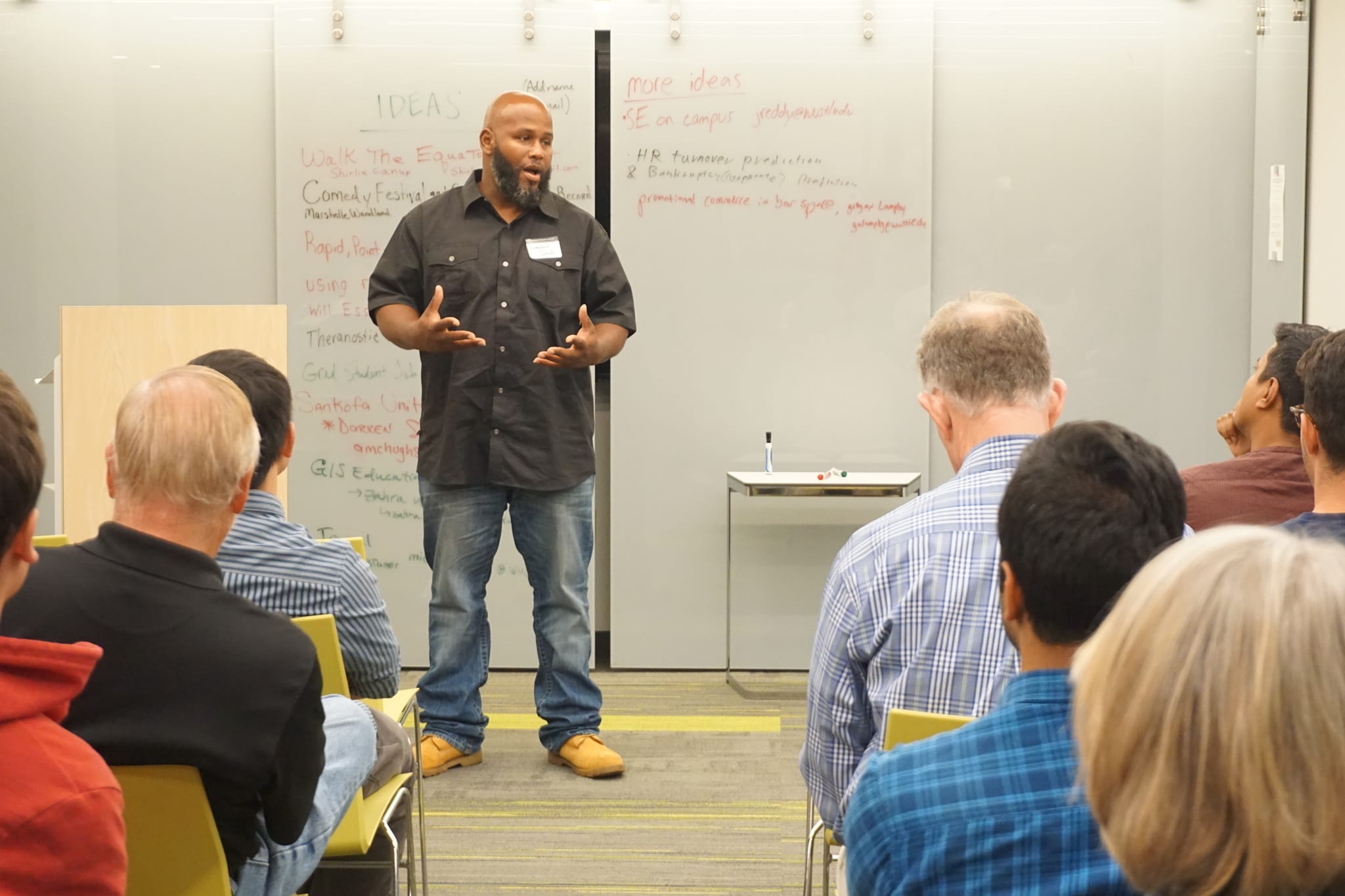On October 10th 2018, innovators and entrepreneurs from the WashU and St. Louis communities shared their business ideas with each other at our IdeaBounce® pitch event.
IdeaBounce® is both an online platform and event for sharing ideas and making connections. It is an opportunity to share ideas, get feedback, and make connections.
One attendee at the pitch event, Darren Seals, shared his story and project that came of it. He grew up in St. Louis, and though he did not go to college, Seals joked that he had a “PhD in mistakes” from hanging out in the wrong crowd growing up. He spent some time in jail, and has been shot 13 times—the last of which was his breaking point. A bullet that should have killed him instead placed him in a coma, but when he awoke, his mindset shifted. He was done “getting even” on the streets, and began channeling his energy towards helping kids in his community stay out of trouble. He started the Sankofa Unity Center to teach kids a trade to keep them out of trouble. His mission is to achieve “not community, unity.”
After the pitches, Seals spoke with our team and shared his reason for attending the IdeaBounce®. He was hoping to get help with repairing a wall that had collapsed in the church that the program operates out of. He also was interested in the different minds and types of thinking that would be in attendance. Once he heard the pitches, he said he realized the importance of technology. The event helped Darren see the need for a computer room in his program. Many of the kids he works with do not have a computer at home. The only available computer may be in a library which would potentially be in a different neighborhood. Seals explained that if you live in a neighborhood that feels like a war zone, it is not safe to go to another neighborhood, which means they may never learn about or use computers. Especially since he teaches trades, he sees computer skills as a necessity.
Some other ideas pitched at the event included:
-
Walk the Equator With Me – walking in various places of St. Louis to get a feel for the community
-
Comedy Festival for charity
-
Rapid form of genetic testing to help people find out if they have a predisposition to certain diseases such as Parkinson’s
-
Theranostic nanoparticles for cancer therapy—a patented medical protein to help glioblastoma patients
-
Grad student job board—a platform to help students, especially humanity students, find work
-
Sankofa Unity Center—help young people in impoverished neighborhoods in St. Louis receive technical training in hopes of preventing them from going down a more dangerous path
-
GIS education platform—as well as developing the platform, they were looking for people with technical backgrounds to assist with platform
-
Tonal—a messaging program that decodes facial expressions during phone use to see emotion and transcribe it to messaging services
-
SE on campus—“Using business mindset to solve problems initially taken on by non profits”
-
HR turnover prediction and corporate bankruptcy prediction—build generalized HR software to help businesses predict longevity of work and profit margins
-
Platform that promotes happy hours and parties—offer bigger discounts for customers that come in bigger group sizes to bars partnering with program
-
A project to engage refugee women in St. Louis to make clothing and crafts as a job in order to keep them out of sex trafficking
-
A software for education administrators to help underprivileged schools improve themselves easily and cheaply
-
Dimensions—a program to help acclimate students to the city



